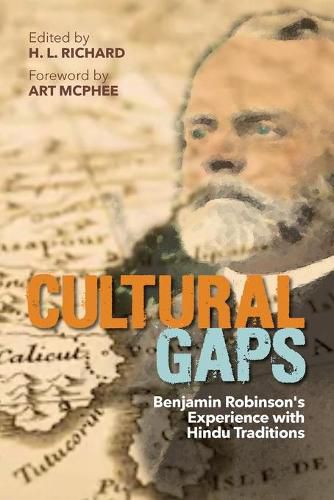Readings Newsletter
Become a Readings Member to make your shopping experience even easier.
Sign in or sign up for free!
You’re not far away from qualifying for FREE standard shipping within Australia
You’ve qualified for FREE standard shipping within Australia
The cart is loading…






This title is printed to order. This book may have been self-published. If so, we cannot guarantee the quality of the content. In the main most books will have gone through the editing process however some may not. We therefore suggest that you be aware of this before ordering this book. If in doubt check either the author or publisher’s details as we are unable to accept any returns unless they are faulty. Please contact us if you have any questions.
Focus on unreached people groups and the emergence of a global church have not yet eliminated massive gaps in the spread of the gospel. Differences between Hindu and Christian traditions account for the uneven reception of the gospel of Christ among Hindu peoples. Contextualization, best practices, and movements to Christ are central discussion points in response.
In Cultural Gaps, H. L. Richard brings Benjamin Robinson, a forgotten nineteenth-century pioneer missionary, back into this conversation by reviving his memoir, In the Brahmans’ Holy Land, with a new foreword, extensive footnotes, and a new introduction. Robinson’s experiences in south India in the 1880s remain relevant, particularly his attempts at authentic interreligious encounter and his struggle to adequately integrate into the Hindu context. Robinson did not stop at language acquisition, cultural study, or personal relationships, but felt called to adapt his lifestyle further, trusting in God’s help. Although his engagement with Hindus was cut short by health problems, he had a deep humility, an unflagging commitment to learn, and an exemplary sense of inadequacy for a high calling.
Robinson’s honesty regarding personal struggles with the perplexity of understanding Hindus relates immediately with current realities. His memoir raises important questions about faithful service and trusting God for an outcome that may still be yet to come. The path forward for better cross-cultural engagement is clearly present in the life and thought of this significant pioneer.
$9.00 standard shipping within Australia
FREE standard shipping within Australia for orders over $100.00
Express & International shipping calculated at checkout
This title is printed to order. This book may have been self-published. If so, we cannot guarantee the quality of the content. In the main most books will have gone through the editing process however some may not. We therefore suggest that you be aware of this before ordering this book. If in doubt check either the author or publisher’s details as we are unable to accept any returns unless they are faulty. Please contact us if you have any questions.
Focus on unreached people groups and the emergence of a global church have not yet eliminated massive gaps in the spread of the gospel. Differences between Hindu and Christian traditions account for the uneven reception of the gospel of Christ among Hindu peoples. Contextualization, best practices, and movements to Christ are central discussion points in response.
In Cultural Gaps, H. L. Richard brings Benjamin Robinson, a forgotten nineteenth-century pioneer missionary, back into this conversation by reviving his memoir, In the Brahmans’ Holy Land, with a new foreword, extensive footnotes, and a new introduction. Robinson’s experiences in south India in the 1880s remain relevant, particularly his attempts at authentic interreligious encounter and his struggle to adequately integrate into the Hindu context. Robinson did not stop at language acquisition, cultural study, or personal relationships, but felt called to adapt his lifestyle further, trusting in God’s help. Although his engagement with Hindus was cut short by health problems, he had a deep humility, an unflagging commitment to learn, and an exemplary sense of inadequacy for a high calling.
Robinson’s honesty regarding personal struggles with the perplexity of understanding Hindus relates immediately with current realities. His memoir raises important questions about faithful service and trusting God for an outcome that may still be yet to come. The path forward for better cross-cultural engagement is clearly present in the life and thought of this significant pioneer.